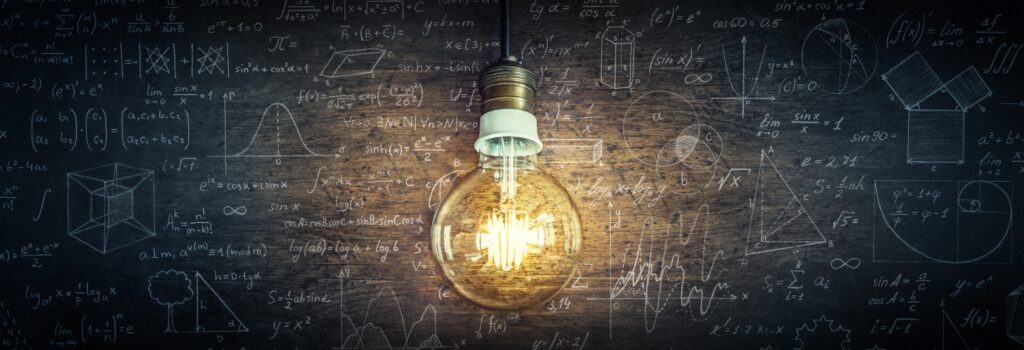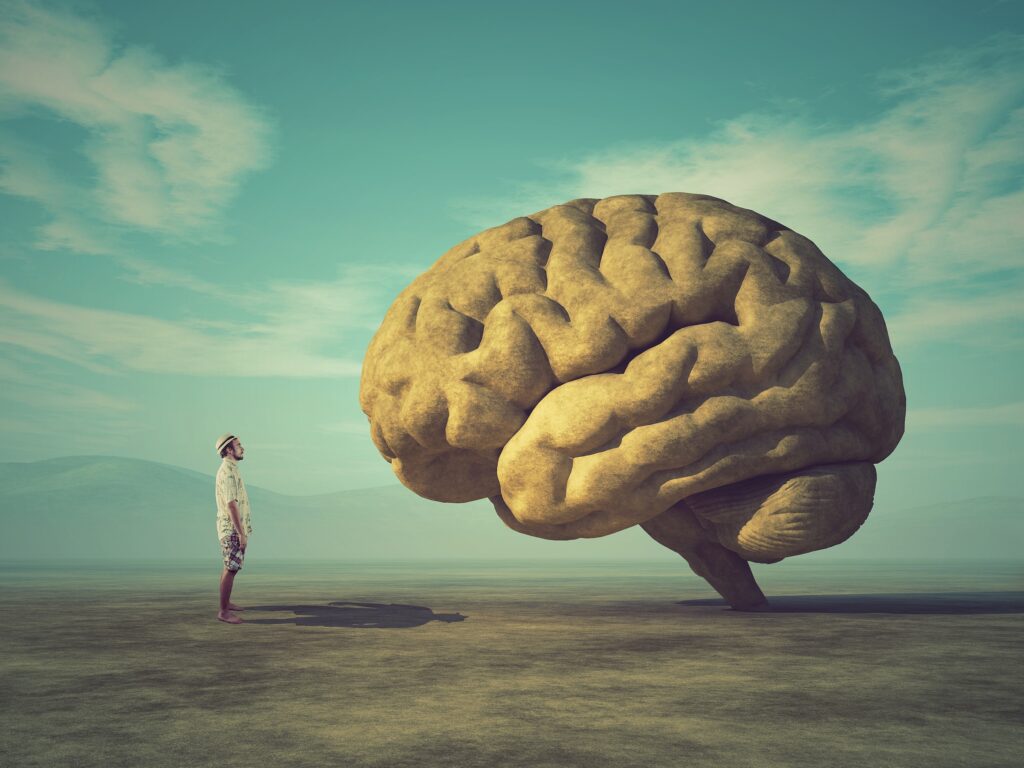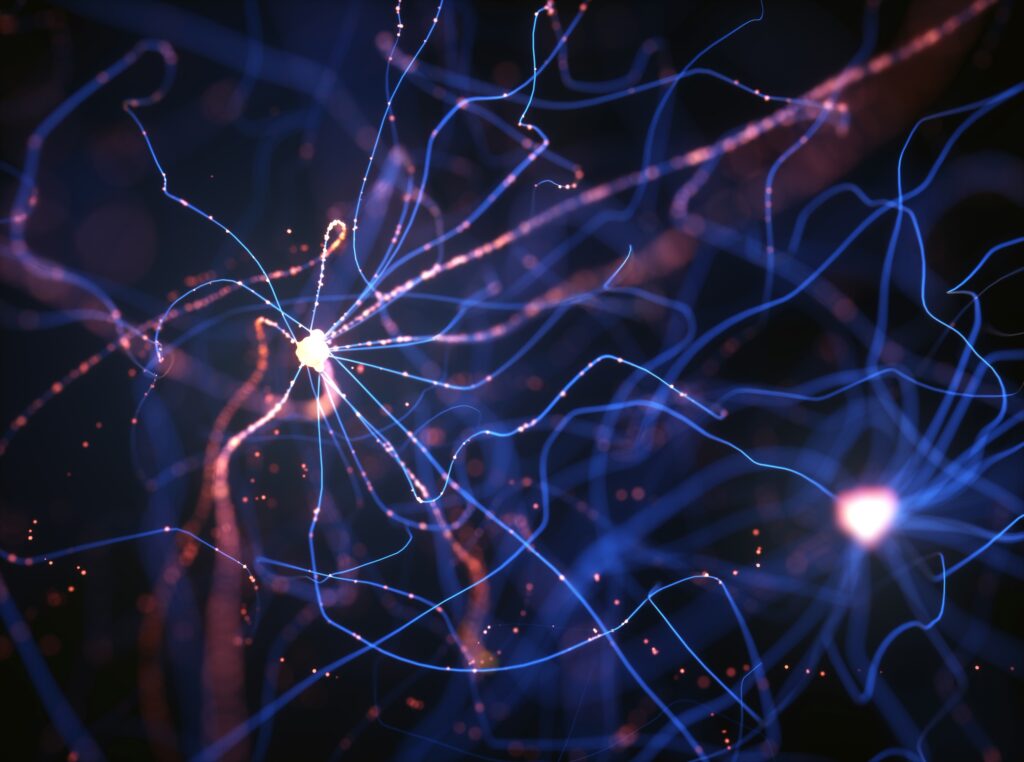Experience requires no personal self
Reading | Phenomenology
![]() Dr. Graham Stew, DPhil. | 2022-10-16
Dr. Graham Stew, DPhil. | 2022-10-16

We tend to think that experiences are given to our personal subjectivity. Dr. Stew shows here, using easy-to-follow Western reasoning, that no such personal self needs to exist for experience itself to exist. This is the second and final of part of last week’s essay.
What is experience?
Phenomenology—the Western approach to the direct, objective study of subjectivity—seeks to understand ‘lived experience.’ But what does that really mean? Put simply, our experience consists of sensations, thoughts and feelings, which result from sensory perceptions and mental activity.
Simple perceptions, such as the taste of an orange, the smell of coffee, or the color blue, are known to philosophers as qualia (Blackmore, 2005). These building blocks of experience might be regarded as the raw ‘givens’ of perception prior to interpretation. Are these essential structures the ‘things themselves’? Do we see, hear, taste, touch and smell objects as they appear in consciousness, or as consciousness? If they are regarded as ‘external’ objects, there is an assumption of a subject who is experiencing them in time and space [Editor’s note: the author uses the term ‘subject’ in the sense of an individual subject, or ego, not as impersonal subjectivity itself]. This is the conventional view of human sentience: the first-person account of our inner experience. But how does it stand up to critical examination?
What can be said about mental phenomena such as thoughts, emotions, memories, ideas and images? They appear in awareness, spontaneously and uninvited, but we usually claim ownership and responsibility for them (my thoughts, feelings, etc.). Descriptive phenomenologists aim to capture the ‘pre-reflective’ nature of our experience, before the layers of thoughts, theory and judgment obscure our perception. Can these be immaculate perceptions, a form of choiceless awareness before the movement of thought? Many contemplative traditions (in both the East and West) would contend that it is possible to reach such an open and empty state of receptivity (Krishnamurti, 2010). Indeed, they would question the assumption of an ‘experiencer’ who experiences, a subject who perceives objects. We will visit this perspective later.
For now, let us now recap. Experience comprises mental events and sensory information, which seem to produce an inner world of subjective experience. Upon further investigation, it can be argued that the concepts of time and space, and indeed of a separate self, are also produced by the interpreted construction of experience. The world and our assumed identity are understood and conceptualized through this ever-changing flow of phenomena: the ‘stream of consciousness’ first described by William James (1890).
All experience requires conscious awareness to be experienced. Mind, which appears in consciousness, is necessary for the world to exist [Editor’s note: the author uses the word ‘mind’ not as a synonym of consciousness, as in much of the Western philosophical tradition, but instead as a subset of the activity of consciousness]. Quantum physicists are recognizing the fundamental nature of consciousness (see Bohm, 1980; Herbert, 1985; Tiller, 1997; Capra, 2010), insofar as quantum theory cannot be completely defined without introducing features of consciousness. This view of the primacy of consciousness is gathering increasing support in the scientific community, and seems likely to sweep away the obsolete but still dominant paradigm of reductive materialism (Kastrup, 2014).
In this new paradigm consciousness is fundamental. It enables experience to create meaning and understanding, and it is the one thing we cannot deny. So experiences appear in consciousness (which is outside time and space, without any characteristics and not locatable) and assume the being-ness of presence. There are no separate phenomena but simply appearances in and as consciousness. Objects exist in the abstract world of thought and are concepts rather than actual entities.
Is there an enduring self or ego that is aware of experience? As already discussed, experience can be regarded as a series of interconnected events and mental states (thoughts, feelings and sensations). The assumption of the continued existence of an ego (or subject who experiences) is challenged not only by Buddhist thought, but other theorists, such as Derek Parfit (1986) and his ‘bundle’ theory of self. Drawing upon the ideas of David Hume (1711-1776), Parfit claims that all experiences and mental events are causally related and can be likened to a ‘bundle’ tied up with string. One can examine experiences seeking for a ‘self’ who experiences, but all that is found are the experiences. What I may regard as ‘my life’ is a series of perceptions and impressions that are tied together by memory and give rise to the idea of an enduring identity. There is no person apart from the series of connected events, and what we call an individual is merely a convention of language.
Such a theory seems counterintuitive, and entails abandoning any belief that you are a person who has free will and lives a life in your particular body. Because of the difficulties in otherwise defining the self, it is a perspective that at least deserves attention. Standing apart from other major religions, which support the concept of an ego or soul, Buddhism maintains that there is no substantial or enduring entity that can be regarded as a self, a basic principle (anatman) recognized as one of the marks of existence. The Buddha could therefore be viewed as the first bundle theorist. This is not stating that some form of subjectivity does not exist, but that the concept of a persisting and separate self/ego is an illusion. Viewing the ego as a defined persona or social role, one can see that it consists of an arbitrary selection of experiences with which we have been taught to identify. Why, for example, do we say “I think” but not “I am beating my heart”? (Watts, 2017).
Although denying the ultimate existence of an enduring self, Buddhism admits an impermanent form of subjectivity or sentience, the awareness of being present. So can there be an impersonal awareness, similar to the transcendental consciousness of Husserl (1970) or the ‘witness-consciousness’ of Advaita Vedanta? Anticipating Husserl, the 7th century Indian Buddhist thinker Dharmakirti (Dreyfus & Thompson, 2007) argued that conscious states are immanently self-reflexive, and therefore phenomenal. Their ‘givenness’ provides experiences with their ‘seeming’ quality; such as how the taste of honey, or the memory of a place, seems ‘to be like’ something (Nagel, 1974).
We need not assume that a series of experiences requires an independent ‘experiencer.’ Awareness itself can be regarded as non-dual (having neither subject nor object), and being one with the noumenon, which is the source of all phenomena. It is the movement of thought (which is mind) that disturbs awareness by perceiving, defining and judging apparent objects and states. It follows that, situated within the constructs of time and space, the story of a self can be created (Stew, 2016).
This sense of self is very real (as ‘you’ are no doubt aware), and it is this quality of personal subjectivity that makes the whole question of consciousness so puzzling and intriguing. The idea of ‘me,’ with a personal history and identity, is apparently convincing, but to infer that subjective experience proves the existence of a stable, historical person could be a mistake.
The self [Editor’s note: the personal self, that is] is a narrative construction as far as Daniel Dennett (1991:246) is concerned: “Our tales are spun, but for the most part we don’t spin them; they spin us. Our human consciousness, and our narrative selfhood, is their product, not source.” The reification of self is the result of assuming that the transient stream of experience necessarily indicates the existence of a substantive or permanent self or ego.
Can there be a ‘subjectivity’ of experience—the phenomenological focus—without reifying a person who is permanent and invariant? There are definite similarities here between Zahavi’s (2005) concept of a ‘minimal self,’ the transcendental ego of Husserl, and the witness-consciousness of Vedanta. Could it be this neutral pre-reflective awareness that simply knows the background hum of presence, of simply being? Is there a need for an intermediate ‘self,’ which would simply be another phenomenal object?
Buddhism views all objects, including apparent persons, as inherently empty (shunya) and impermanent (anicca), their existence being illusory. The analogy of a burning candle is often used to explain this position: the light from the candle appears persistent, as the stream of hot flowing gases suggests permanence, but the reality is far from stable and static. Any notion of ‘self’ is an attempt to capture and halt the flow of life itself. Mind is needed for the world to exist; and consciousness is necessary for the mind to appear. Consciousness is viewed as the noumenal ground of being by non-dualists, as it is self-illuminating and reveals itself by its very occurrence (Mackenzie, 2007).
These ideas may seem challenging for readers who are steeped in familiar Cartesian dualism and feel comfortable with their realist ontology. However, let me summarize this position as concisely as possible. It is suggested that experience is not produced by the mind, but is in consciousness. All experience is mind: it does not appear in the mind. Mind comprises thoughts, sensations and perceptions, and they all appear in consciousness. All that is experienced is in consciousness and it is consciousness that is experiencing it. There is thinking, feeling and sensing and all these are suffused with consciousness. Consciousness is first-person experience; the knowing element in every experience (Spira, 2017).
We can now move to explore the nature of awareness, but if your brain is hurting too much you may need to take a break!
What is awareness?
If phenomenology is the study of the contents of conscious awareness, who or what is aware?
Does awareness require a self to ‘have’ awareness? Could it be that, at source, we are nothing more than conscious awareness? Can consciousness become aware of itself through the appearance of phenomena? Vedantins and Buddhists feel that consciousness is analogous to light, which, in revealing other things, shines in itself (MacKenzie, 2007). Rupert Spira (2017) suggests that awareness knows itself simply by being itself, just as the sun illuminates itself simply by being itself.
Any experience requires the presence of consciousness; but the screen of awareness does not depend on experience. All there is to any experience is sensation and perception. All there is to a sensation or perception is the experience of sensing and perceiving; and the only substance present in sensing and perceiving is awareness.
As nervous systems develop, conditioned by educational and sociocultural influences, apparent objects are recognized from memory and automatically identified when perceived. Familiar objects in the ‘developed’ world, such as a mobile phone, are instantly labelled; although the same object might mean nothing to a member of a remote Amazonian tribe. Meaning is attached to words and concepts, and these interpretations are subjective and unique. The mind therefore constructs our ‘personal’ world, and the mind is made out of consciousness, which is all there is.
This is not solipsism, as it is not suggested that the individual mind is all that can be known to exist. Nor is it panpsychism, which is still essentially dualistic in viewing everything in the physical world to be imbued with consciousness. We in the West have tended to equate consciousness with subjectivity, which we associate with the mind as a reflection of the body and world. Eastern philosophy, however, distinguishes mind from consciousness, with mind defined as the content of consciousness.
As a sensation or thought is perceived, attention is directed towards it (‘intentionality’) and the mind (a collection of memories and concepts) is engaged in creating meaning. Attention is simply focused awareness, which is itself empty and without any qualities. Attention directed outwards towards sensations and thoughts (experience) forms the basis of phenomena (objectification). It is the input from our senses and the resulting mental activity that constitutes our lived experience, and this all occurs within conscious awareness. For any object—a thought, feeling, sensation or perception—to come into the field of experience, consciousness must focus and thus limit its awareness in the form of attention. Attention thus brings form into existence out of the formless field of infinite consciousness. Attention directed inwards to awareness itself (noumenon) is true meditation.
Paying conscious and non-judgmental attention to our moment-to-moment experience is the essence of mindfulness. Through cultivating this practice, it becomes possible to observe the transient nature of thoughts, feeling and sensations as they arise and pass away in our awareness. Whatever is recognized as an object of one’s attention cannot be what one truly is. Mindfulness, as a form of conscious and active reflexivity, probably deserves wider recognition and debate.
Quantum theory has something to contribute to the debate on attention. One of the most significant conclusions reached by quantum physicists in recent times is the fact that no object exists unless it is observed (Schrödinger, 2009; Heisenberg, 2000). There is an interdependent and intimate relationship between the observer and the observed; both are needed for any observation to occur. When there is only observing, the observer becomes the observed (Krishnamurti, 2010). In other words, there is a collapse of both subject and object, from duality to the non-dual; and from the phenomenal to the noumenal.
Applications to the research process
Phenomenological researchers may be reading this essay and wondering what conclusions to draw from the preceding discussion. Of what relevance do these complex and confusing philosophical ideas have to the practical business of doing research?
As phenomenologists, we are interested in the experiences and ‘lifeworlds’ of our participants. Whether our aim is the description of ‘essential structures’ of a phenomenon of interest, or its interpretation in its existential context, we will hold certain assumptions about the nature of consciousness and experience. These presuppositions may well be unconscious and unquestioned, but the purpose of this essay has been to bring these issues into the open for critical examination.
Researchers are normally encouraged to make explicit their ontological and epistemological stances, and to explain their philosophical position regarding what constitutes reality and knowledge. In my experience, this expectation seems to apply more to qualitative studies than to positivist research.
For phenomenological inquiries, however, there is arguably a need to go further and to consider and justify how the specific approach chosen is consistent with its foundational philosophy.
Certain questions need to be addressed: How is consciousness viewed? Does it arise from matter and is a function of the brain? Is there an external, independent world that is given to consciousness? Does experience happen to an individual? Alternatively: Does consciousness give rise to the brain, the world and all phenomena? Does experience create the individual? Can there be description without interpretation? Is the self/ego a construction? Does experience have inherent meaning? This essay has not provided any conclusive answers to these questions, but has endeavored to expand the debate on these issues beyond the usual occidental worldview. For example, the Indian concept of witness-consciousness relates to Husserl’s transcendental ego and deserves further investigation.
Perhaps in his search for ‘pure consciousness’ Husserl chose not to venture too far into spiritual traditions, fearing the negative reactions of a positivist world, skeptical of any metaphysics. Would this be seen as a neo-Kantian form of transcendental idealism, too close to ‘unknowable spirituality’ to be accepted by his conservative academic colleagues? Clinging to forms, he thus developed the empirical and transcendental egos, and the concepts of noesis and noema: ways of knowing the ‘intersubjective natural world-about-me.’
Heidegger sought to move phenomenology to a more existential focus on being-in-the-world (Dasein), with a rejection of pure ‘mentalism.’ He retained the term ‘human being,’ which suggests that he had shifted from the earlier consciousness-centered phenomenology to the ontic dimension of anthropology.
Debate continues among philosophers and researchers on the concepts of epoché and reduction, and whether prior understanding, judgements and assumptions can be identified, suspended and transcended, or whether our perceptions are inevitably interpreted and meaning is already present. The subtleties of this debate have not been addressed here, as it has been suggested that phenomena have no inherent or independent existence, dependent as they are on conscious awareness and subject to socio-cultural conditioning. Description always requires interpretation, as we seek to make sense of our experience. Caution is therefore necessary in claiming any type of veracity or wider application for phenomenological findings.
Whichever approach is adopted, the purpose of phenomenology is to gain insight into, and understanding of, individuals’ experiences. Awareness, empathy and sensitivity towards a human situation, without claiming generalizability to wider populations, are regarded as being intrinsically worthwhile and valuable outcomes. In health care settings, phenomenological research aims to inform practice and sensitize practitioners. No recommendations or theoretical models are produced, as it is up to readers to interpret the findings, and if these resonate with their own experience the research is likely to have an impact. The researcher’s responsibility is to demonstrate reflexivity, authenticity and trustworthiness.
Allow me to propose again that all experience arises within awareness and that the ‘reality’ we believe we know is actually produced by conceptual thought. We perceive a common world by agreeing on the way we describe it. That is, by labelling objects arising in consciousness, we produce a standardized model of the world using language. Objects and the thoughts that define them seem to arise simultaneously in awareness. We are trapped by language, which is inevitably limited, subjective and dualistic. This mental division of subject and object fractures reality, the true nature of which is non-dual. The belief that objects exist independently of awareness is just that: a belief without any foundation of evidence.
To use the familiar metaphor of waves and ocean: the waves (the objects) are the phenomena that we witness with our senses, but their real essence is the ocean (the Subject/Consciousness). The ocean is of course the essence of our true being, but we cannot grasp this with our rational mind. However, when the illusion of being a separate individual is seen through, the identification with the waves disappears and ‘ocean-consciousness’ comes to the fore. We recognize that both wave and ocean are essentially water, and that everything in the world is interconnected. It is one universal Energy; what Tibetan Buddhists refer to as ‘One Taste.’
I am suggesting that being and consciousness are one and the same. There is no such thing as ‘objective’ being without consciousness; all being is subjective and occurs in and as consciousness. Consciousness is not a ‘thing’; it is a capacity to perceive, an openness which is both empty and full. Concepts are objects appearing in awareness, and all experience exists within, and is made of, this conscious awareness.
As phenomenology is the study of experience, perhaps it is wise to consider that no ‘thing’ exists outside consciousness, which is the true nature of our apparent selves and the world. In the light of this understanding, all conceptual debates about description and interpretation pale into insignificance. Husserl’s warning is still valid: subjectivity cannot be known by any objective science.
We continue to pay attention to the transitory images on the screen, but not to the screen of awareness itself. It would seem more useful to explore the nature of conscious awareness, without which nothing can be known, or indeed exist. Without an appreciation of the ground of our being, noumenal awareness, there can only be limited understanding of what we call phenomena. As William Blake (2000) said, “If the doors of perception were cleansed everything would appear as it is, Infinite.”
Arguably, research will always be a dualistic activity, as it sets up a subject to investigate objects. No matter how relativist or constructivist our ontological stance may be, there will inevitably be the division between the researcher and the researched. Whatever theoretical perspective may be adopted—existentialism, post-modernism, post-structuralism, post-humanism, or any other ’ism’—it will remain simply a conceptual framework through which experiences assume meaning, and which is contained within consciousness. We may make our choice between styles of phenomenology, but need to ensure that our philosophical foundations are sound, defensible and consistent with our aims and outcomes.
We can attempt to restrain prior understanding through consciously adopting a phenomenological attitude, but in reality all experience is one seamless substance. The division between the internal self and the external object is never actually experienced. It is always imagined by thought.
If consciousness is all there is, and all phenomena are simply the contents of consciousness, then what is phenomenological research for? We may explore experience, but any resulting description and interpretation will occur within conscious awareness, which is beyond all analysis and definition. By all means let us study experience, but do not claim it is a science of consciousness, for what will be studied will be doing the studying, and the eye cannot see itself!
Conclusions
So let me summarize and return to phenomenology for the last time; to the researcher asking questions of others about their experience and what it means; to the researcher writing a story about the participants’ stories; and the readers of the research taking away their own interpreted stories: what does it all mean?
We explore—we seek meaning in life—in our own and others’ lives. We do not accept what we find as absolute truth, because we accept that no such thing exists. We understand more; we appreciate others’ experiences more deeply, more sensitively, and we take those insights into our own lives. These insights may change the way we work and relate to others and ourselves; or they may not. Does it matter? Have we increased our store of ‘knowledge’ as a result of these efforts? Perhaps. Will this knowledge change the world? Probably not.
But human curiosity is indomitable and will not be denied. We ask questions and demand answers. Phenomenology seeks to satisfy our curiosity about what it means to be human and have experiences. We have little idea what experience is, or where it comes from. We have even less idea about what it means to be conscious, but the thirst for understanding drives us on.
Perhaps we can simply agree that:
The world is known by the senses
The senses are known by the mind
The mind is known by Consciousness
And Consciousness is known by itself.
When we search deep inside Consciousness
Consciousness searches deep inside us.
References
Baars, B. J. (1988) A Cognitive Theory of Consciousness. New York: Cambridge University Press.
Blake, W. (2000) The Marriage of Heaven and Hell. In The Selected Works of William Blake. Ed. Bruce Woodcock. Hertfordshire: Wordsworth Editions,195-206.
Blackmore, S. (2005) Consciousness: A Very Short Introduction, Oxford: Oxford University Press.
Blackmore, S. (2011) Consciousness: An Introduction, (2nd Edition), New York, Oxford University Press.
Bohm, D. (1980) Wholeness and the Implicate Order. London: Routledge.
Brentano, F. (1973) Psychology from an Empirical Standpoint. London: Routledge. (Original work published 1874)
Capra, F. (2010) The Tao of Physics: An Exploration of the Parallels Between Modern Physics and Eastern Mysticism. (5th edition) Boston: Shambhala Publications.
Chalmers, D. J. (1995) Facing up to the problem of consciousness Journal of Consciousness Studies. 2(3), 200–219
Chalmers, D.J. (1995b) The puzzle of conscious experience. Scientific American, Dec. 1995, 62–68
Chalmers, D. J. (1996). The conscious mind: in search of a fundamental theory. New York, Oxford: Oxford University Press.
Crick, F. H. (1994) The Astonishing Hypothesis: The Scientific Search for the Soul. New York: Scribners.
Dennett, D. C. (1991) Consciousness Explained. Boston: Little, Brown & Co.
Dreyfus, G., & Thompson, E. (2007) Asian perspectives. Indian theories of mind. In P. D. Zelazo, M. Moscovitch, & E. Thompson (Eds.) The Cambridge handbook of consciousness (pp. 89–114). Cambridge: Cambridge University Press.
Eddington, A. (1928) The Nature of the Physical World. Cambridge: Cambridge University Press.
Fasching, W. (2008) Consciousness, self-consciousness, and meditation. Phenomenology and the Cognitive Sciences, Volume 7, Issue 4, pp 463–483.
Freud, S. (2000) The Unconscious. London: Penguin Classics. (Original work published 1915)
Giorgi, A. (2009) The descriptive phenomenological method in psychology: A modified Husserlian approach. Pittsburgh: Duquesne University Press.
Heidegger, M. (1962) Being and time (J. Macquarrie & E. Robinson, Trans.). New York: Harper & Row. (Original work published 1927).
Heisenberg, W. (2000) Physics and Philosophy: The Revolution in Modern Science. London: Penguin Classics. (Original work published 1962).
Herbert, N. (1985) Quantum Reality: Beyond the New Physics. New York: Doubleday
Husserl, E. (1970) The idea of phenomenology. The Hague, The Netherlands: Nijhoff.
Husserl, E. (1980). Phenomenology and the foundations of the sciences. Boston: Martinus Hijhoff Publishers. (Original work published 1952).
James, W. (1890) The Principles of Psychology. New York: Holt.
Kastrup, B. (2014) Why Materialism is Baloney. Hants: John Hunt Publishing.
Krishnamurti, J. (2010) The Book of Life. San Francisco: Harper One.
Loy, D. (1988) Nonduality: a Study in Comparative Philosophy. New York: Humanity Books
Lycan, W. G. (1996) Consciousness and Experience. Cambridge, Mass.: MIT Press
MacKenzie, M. D. (2007). The illumination of consciousness: approaches to self-awareness in the Indian and Western traditions. Philosophy East and West, 57(1), 40–62.
Nagel, T. (1974) What Is It Like To Be a Bat? Philosophical Review 4: 435–50.
Parfit, D. (1986) Reasons and Persons. Oxford: Oxford University Press
Penrose, R. (1995) Shadows Of The Mind: A Search for the Missing Science of Consciousness. London: Vintage
Puligandla, R. (1970) Phenomenological reduction and yogic meditation. Philosophy East and West, 20(1), 19–33.
Rao, K. R. (2011) Cognitive anomalies, Consciousness and Yoga, vol. XVI, part 1 of History of Science, Philosophy and Culture in Indian Civilization, ed. D.P. Chattopadhyaya, New Delhi Centre for Studies in Civilizations / Matrix
Sartre, J-P. (1956) Being and nothingness. An essay on phenomenological ontology. New
Schrödinger, E. (2009) My View of the World. Cambridge: Cambridge University Press.
Skinner, B. F. (1953) Science and Human Behavior. New York: MacMillan.
Smith, J.A, Flowers, P, Larkin, M. (2009) Interpretative Phenomenological Analysis: Theory, Method and Research. London: Sage.
Spira, R. (2017) The Nature of Consciousness: Essays on the Unity of Mind and Matter. Oakland, CA; New Harbinger Publications
Stew. G. (2016) Too Simple for Words – Reflections on Non-Duality. Hants: O Books: John Hunt Publishing.
Tiller, W.A. (1997) Science and Human Transformation: Subtle Energies, Intentionality and Consciousness. California: Pavior Publishing.
Timalsina, S. (2009) Consciousness in Indian Philosophy: the Advaita doctrine of ‘awareness only’. Abingdon: Routledge.
Titchener, E. (1901) An Outline of Psychology. New York: Macmillan.
van Manen, M. (2017) But Is It Phenomenology? Qualitative Health Research; 27 (6). 775- 779.
Waite, D. (2007) Back to the Truth; 5000 years of Advaita. Winchester, UK: O Books.
Wallace, B. A. (2000) The Taboo of Subjectivity: towards a new science of consciousness. Oxford: Oxford University Press.
Watson, J. (1924) Behaviorism. New York: W. W. Norton.
Watts, A. (1976) Tao: The Watercourse Way. London: Jonathan Cape
Watts, A. (2017) In the Academy – essays and lectures. New York: SUNY Press
Wundt, W. (1897) Outlines of Psychology. Leipzig: W. Engleman.
Zahavi, D. (2005) Subjectivity and selfhood. Investigating the first-person perspective. Cambridge, London: MIT.

Essentia Foundation communicates, in an accessible but rigorous manner, the latest results in science and philosophy that point to the mental nature of reality. We are committed to strict, academic-level curation of the material we publish.
Recently published
Reading
Essays
Seeing
Videos
Let us build the future of our culture together
Essentia Foundation is a registered non-profit committed to making its content as accessible as possible. Therefore, we depend on contributions from people like you to continue to do our work. There are many ways to contribute.















